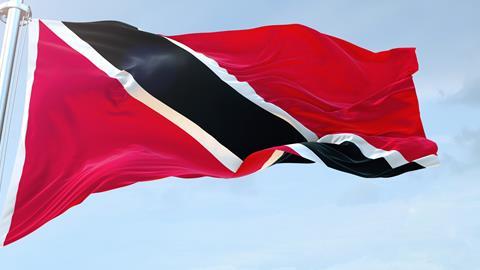Trinidad and Tobago’s mandatory death penalty for murder is constitutional, senior judges in London ruled today in a decision campaigners described as ‘extremely disappointing’.
Jay Chandler killed fellow remand prisoner Kirn Phillip at Golden Grove Prison in Arouca, Trinidad in 2004. He was convicted of murder and sentenced to death on the same day in 2011.
More than 4,000 miles away and a decade later, the Privy Council was asked to consider section 4 of the Offences Against the Person Act 1925, under which every person convicted of murder in Trinidad and Tobago ‘shall suffer death’ – although no one has been executed in the Caribbean nation since 1999.
Chandler’s lawyers argued that the law ‘arbitrarily authorises the imposition of the severest of sentences’ without giving those convicted the opportunity to persuade the court otherwise, in breach of constitutional rights.
However, the Privy Council ruled in 2004 on a similar case about the mandatory death penalty that a ‘savings clause’ in the Trinidadian constitution prevents pre-existing laws from being challenged for incompatibility with the constitution.
In Matthew v Trinidad and Tobago, the court unanimously held that the mandatory death penalty is a ‘cruel and unusual punishment’ but ruled, by a 5-4 majority, that section 4 could not be invalidated.
But Edward Fitzgerald QC, for Chandler, told the court in November that a 2018 ruling of the Caribbean Court of Justice (CCJ) justified the court ‘reviewing and reversing the previous decision of the board in Matthew’.
In Nervais v Barbados the CCJ found that Barbados’ mandatory death penalty violated constitutional rights, which left Trinidad and Tobago as the last country in the English-speaking Caribbean to retain such a law.
However, the Privy Council today ruled that Trinidad and Tobago’s 1976 constitution ‘saves existing laws, including the mandatory death penalty, from constitutional challenge’.
Lord Hodge, giving the unanimous judgment of the court, said: ‘The consequence of that is that the state of Trinidad and Tobago has a statutory rule which mandates the imposition of a sentence, which will often be disproportionate and unjust.’
The judge said it is ‘striking’ that the mandatory death penalty, which Trinidad and Tobago accepts is a ‘cruel and unusual punishment’, remains on the statute book but held that the constitution ‘has allocated to parliament, as the democratic organ of government, the task of reforming and updating the law’.
Parvais Jabbar – co-executive director of The Death Penalty Project, an NGO based at London firm Simons Muirhead Burton which represented Chandler – said: ‘Whilst today’s decision by the Privy Council is extremely disappointing, the case has once again brought this critical issue to the fore.
‘We hope it will lead Trinidad and Tobago to re-examine the savings law clause which continues to protect old laws most modern democracies consider morally objectionable, including laws which discriminate on grounds of gender, religion, or sexuality.’
This article is now closed for comment.




























9 Readers' comments